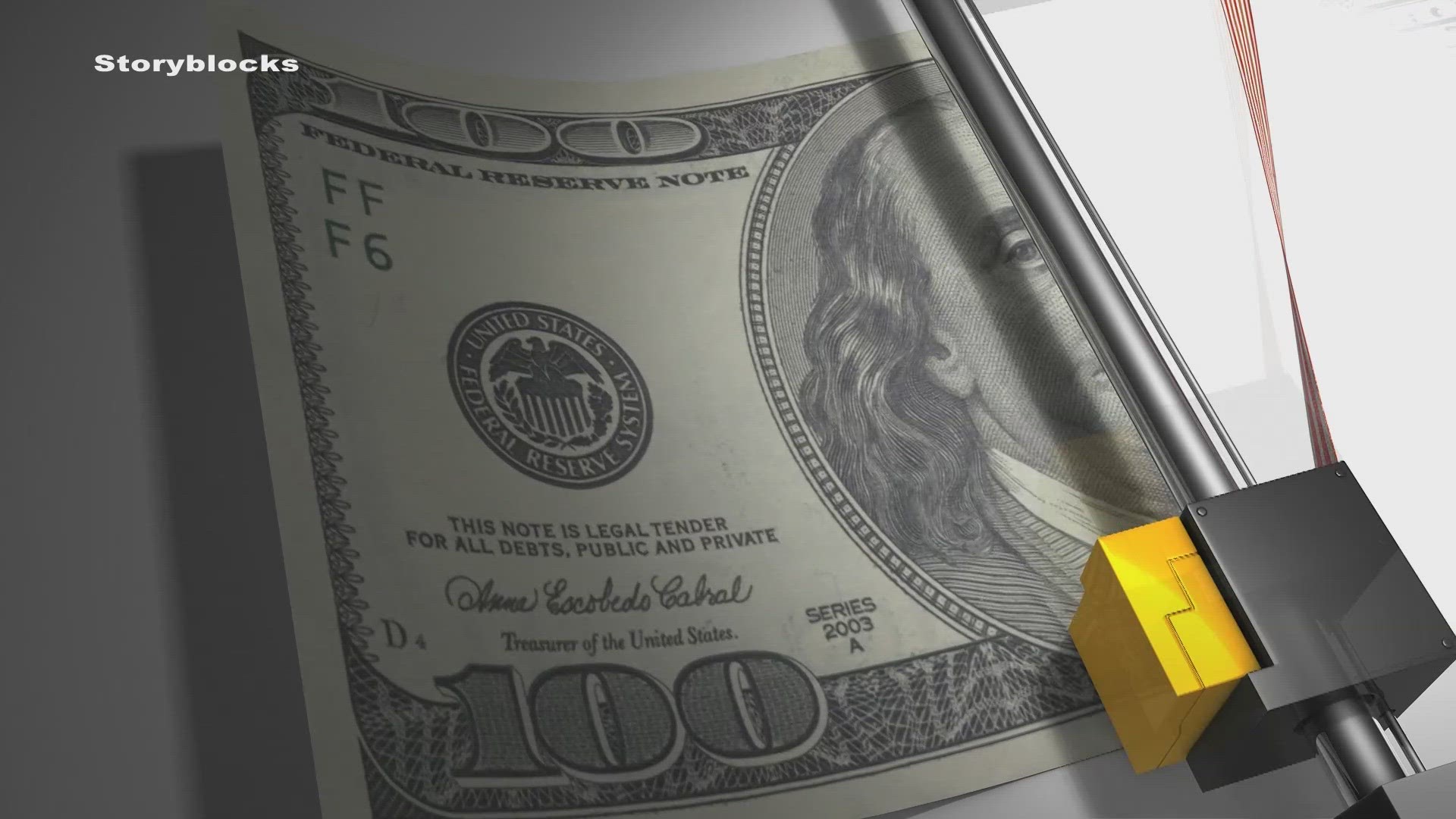TEMPLE, Texas — The $33 trillion gross federal debt is debt held by the public plus debt held by federal trust funds and other government accounts. In very basic terms, this can be thought of as debt that the government owes to others plus debt that it owes to itself.
‘Modern Monetary Theory’ is an economic theory that suggests the government could simply create more money without consequence as it's the issuer of the currency.
Certified Financial Planner Neil Vannoy told 6 News, "The national debt gets a lot of focus these days – especially since it has grown so quickly, but our country having a large debt is different than personally being in debt."
So, how quickly has it grown?
Since the bank bailouts of 2008, the national debt has gone from 10 trillion to 33 trillion! That's an average deficit of nearly 1 and a half trillion per year over that 15 years span!
Neil says, "I'm not minimizing the debt and I’m personally not a fan of it, but it's easier for an individual to get overwhelmed by debt than a country."
So, what does it mean for me, the average American, or investor?
Neil answered that by saying, "If the government decides to get serious about reducing the deficit which adds to our debt or decides to pay down some of the debt it can raise taxes, cut spending, or a combination of the two."
If both of those things happen, it will be felt by Americans for sure. Social net programs could go away and hardworking Americans could face higher taxes.
However, Vannoy says it's much more important to worry about your own finances. "One thing to keep in mind is that the US Debt is someone else's asset. Treasury bills, notes, and bonds are considered some of the safest types of fixed income in the world, and investors are one of the largest holders of us debt. I'm not saying that the level of our debt is good, but I do think that these types of investments can be great for investors," Vannoy explained.
As for growth, starting a business or building and construction can be hampered by crippling debt! Neil says, "A growing debt can slow down the overall growth rate of the economy. This can be problematic since the debt will shrink as a percentage of our GDP if the economy grows faster than our debt."
With the congressional budget office predicting that we will add another trillion to our national debt over the next year, it doesn't appear that our debt will be shrinking anytime soon.
However, with divided government, getting things passed through congress has taken continuing resolutions and no actual budget. The last time congress completed all bills on time and passed a budget was 20 years ago.
Also on KCENTV.com:

